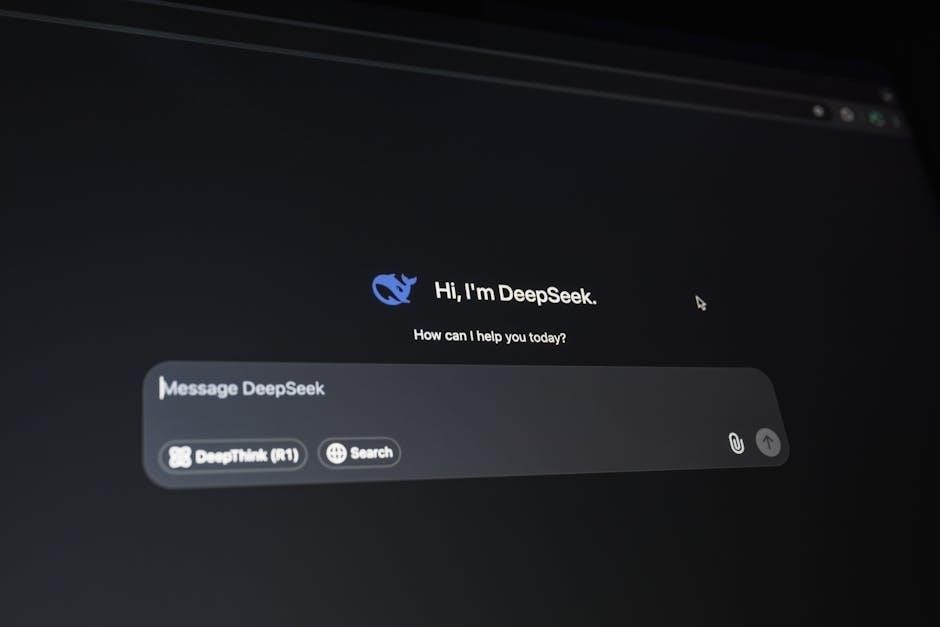HIPAA compliance is crucial for healthcare professionals to ensure patient data privacy․ This PDF provides essential questions and answers, offering clear guidance on HIPAA regulations, patient rights, and breach notifications, serving as a valuable resource for training and understanding compliance requirements․
Overview of HIPAA and Its Importance
HIPAA, the Health Insurance Portability and Accountability Act, is a federal law enacted in 1996 to protect the privacy and security of patient health information․ It establishes national standards for handling Protected Health Information (PHI) and ensures confidentiality, integrity, and availability of health data․ HIPAA applies to covered entities like healthcare providers, insurers, and clearinghouses, and their business associates․ Its importance lies in safeguarding sensitive patient information from unauthorized access or breaches, fostering trust between patients and healthcare providers․ Compliance with HIPAA is enforced by the Office for Civil Rights, with penalties for violations․ Understanding HIPAA is essential for maintaining legal and ethical standards in healthcare․
Why HIPAA Questions and Answers Are Essential for Compliance
HIPAA questions and answers are vital tools for ensuring compliance with federal regulations․ They provide clarity on complex legal requirements, helping healthcare professionals understand their roles in protecting patient data․ These resources address common misconceptions and offer practical guidance on handling sensitive information․ Regularly reviewing HIPAA Q&As enables organizations to stay updated on compliance standards, mitigate risks of breaches, and avoid costly penalties․ Additionally, they empower patients by informing them of their rights regarding their health information, fostering trust and transparency in healthcare services․ Clear answers to HIPAA-related questions are indispensable for maintaining legal and ethical integrity in the industry․

HIPAA Basics
HIPAA establishes national standards for protecting health information, ensuring patient privacy and security․ It applies to covered entities and business associates, governing PHI handling․
Key Principles of HIPAA Privacy and Security Rules
The HIPAA Privacy Rule safeguards Protected Health Information (PHI) by limiting its use and disclosure․ It ensures patients have rights over their health data, including access and amendment rights․ The Security Rule protects electronic PHI (ePHI) through administrative, technical, and physical safeguards․ Key principles include confidentiality, integrity, and availability of health information․ Covered entities must implement policies to ensure compliance, such as access controls and encryption․ Patients’ information must only be shared for treatment, payment, or healthcare operations, unless authorized otherwise․ These principles aim to balance privacy protections with healthcare operations’ needs, ensuring trust in the healthcare system․
Protected Health Information (PHI) and Its Scope
Protected Health Information (PHI) refers to individually identifiable health information transmitted or maintained in any form․ PHI includes names, addresses, dates, phone numbers, Social Security numbers, medical record numbers, and health details like diagnoses or treatment plans․ HIPAA protects PHI from unauthorized use or disclosure, ensuring patient privacy․ Covered entities must safeguard PHI in all forms—paper, electronic, or oral․ Disclosure of PHI without authorization is prohibited, except for specific purposes like treatment, payment, or healthcare operations․ Understanding PHI’s scope is critical for compliance, as mishandling can lead to breaches and legal consequences․

Patient Rights Under HIPAA
HIPAA grants patients the right to access, request copies, and amend their medical records․ They can also restrict PHI disclosure and receive notice of privacy practices․
Access to Medical Records and Copy Requests
Patient rights under HIPAA include access to their medical records and the ability to request copies․ Patients can inspect and obtain copies of their PHI, promoting transparency and control․ Covered entities must respond to such requests within 30 days, though extensions are allowed under specific circumstances․ A reasonable fee may be charged for copying and mailing records․ Patients can also request electronic copies if available․ These provisions ensure patients have direct oversight of their health information, fostering trust and accountability in healthcare practices․ Understanding these rights is essential for both patients and providers to maintain compliance and confidentiality․ Clear communication is key․
Right to Request Restrictions on Health Information
HIPAA grants patients the right to request restrictions on how their PHI is used or disclosed․ Patients can ask to limit sharing of their health information for privacy reasons․ Covered entities must honor such requests unless they are for treatment, payment, or healthcare operations․ Restrictions may apply to disclosures to family members or insurers․ Providers can deny certain requests but must inform the patient in writing․ This right empowers individuals to control their health information, ensuring confidentiality and privacy․ It’s a key aspect of HIPAA’s focus on patient autonomy and data protection, reinforcing trust in healthcare services․ Clear policies and communication are essential․

Common HIPAA Misconceptions
A common misconception is that HIPAA prevents all sharing of health information, but it actually allows disclosures for treatment, payment, and healthcare operations․
Myths About Patient Confidentiality and Caregiver Access
A common myth is that HIPAA completely prevents caregivers and family members from accessing patient information․ However, HIPAA allows sharing health information with caregivers under certain conditions, such as when it is in the patient’s best interest or during emergencies․ Another misconception is that healthcare providers cannot discuss patient care with family members without explicit authorization․ In reality, HIPAA permits such discussions if they are relevant to the patient’s treatment and do not violate privacy․ These misunderstandings highlight the need for clear guidance to balance confidentiality and necessary communication․
Discussions of Patient Information in Public Areas
HIPAA prohibits discussing patient information in public areas where unauthorized individuals might overhear․ This includes waiting rooms, elevators, or cafes․ Even without naming the patient, details like diagnoses or treatments can identify them․ Healthcare staff must ensure conversations about PHI occur in private settings․ Brief, general discussions may be permissible if they don’t reveal identifiable details․ Always prioritize patient confidentiality to avoid potential breaches․ This rule applies to all forms of communication, ensuring PHI remains protected from unintended disclosure․

HIPAA Breach Notifications
HIPAA requires prompt notification of breaches involving PHI․ Covered entities must inform affected individuals, HHS, and, in some cases, the media, ensuring transparency and accountability․
What Constitutes a Breach of Patient Confidentiality
A breach of patient confidentiality under HIPAA occurs when PHI is accessed, acquired, or disclosed without authorization, posing a significant risk of identity theft or other harm․ This includes unauthorized access, theft, improper disposal, or accidental disclosure of PHI․ For example, losing an unencrypted laptop containing PHI or mistakenly mailing records to the wrong address qualifies as a breach․ HIPAA requires covered entities to investigate and notify affected individuals, HHS, and sometimes the media, depending on the breach’s severity․ Understanding what constitutes a breach is critical for compliance and safeguarding patient trust․
Procedures for Reporting and Handling Breaches
Upon discovering a breach, covered entities must investigate promptly to determine the scope and root cause․ Notifications must be sent to affected individuals, HHS, and, in cases involving over 500 individuals, the media․ Breach notifications must be in plain language, explaining the incident, risks, and steps taken to mitigate harm․ Entities must also document corrective actions to prevent future breaches․ Timely reporting is critical, with breaches affecting 500+ individuals requiring notification within 60 days․ Smaller breaches must be reported annually․ Proper documentation and compliance with these procedures ensure accountability and minimize legal and reputational risks․ Effective breach handling is essential for maintaining patient trust․
HIPAA Compliance in Practice
HIPAA compliance requires healthcare entities to implement robust privacy and security measures, ensuring the confidentiality, integrity, and availability of PHI through adherence to regulatory guidelines and best practices․
Training Requirements for Healthcare Staff
HIPAA mandates that all healthcare staff undergo regular training to ensure compliance․ This training covers privacy and security rules, handling PHI, and breach prevention․ It emphasizes the importance of safeguarding patient information and understanding legal responsibilities․ Staff must be trained upon hire and annually thereafter․ Training materials often include quizzes and tests to assess understanding․ Effective training programs help prevent violations and ensure that healthcare providers can confidently navigate HIPAA requirements while maintaining patient trust and confidentiality․ Ongoing education is essential to stay updated on regulatory changes and best practices․
Best Practices for Safeguarding PHI in Digital Systems
To safeguard PHI in digital systems, encryption is essential for data both in transit and at rest․ Implement strong access controls, ensuring only authorized personnel can access PHI․ Use multi-factor authentication to enhance security․ Regularly audit systems to identify vulnerabilities and address them promptly․ Keep software and systems updated with the latest security patches․ Utilize secure communication channels for sharing PHI․ Train staff on security policies and procedures to ensure compliance․ Monitor systems for unauthorized access or suspicious activity․ These practices help maintain HIPAA compliance and protect patient data from breaches in digital environments․
FAQs on HIPAA and Mental Health
HIPAA protects mental health information, allowing sharing with family in emergencies․ Patients can request privacy restrictions, ensuring confidentiality unless authorized or required by law to disclose․
Communication with Family and Friends
HIPAA allows healthcare providers to share patient information with family or friends directly involved in care, provided the patient does not object․ In emergencies, disclosure without consent is permitted to prevent harm․ Patients retain the right to restrict such sharing․ Providers must respect patient preferences and ensure confidentiality, balancing care coordination with privacy rights․ This ensures compliance while maintaining patient trust and autonomy in their health information decisions․
Sharing Information in Emergency Situations
HIPAA permits the sharing of protected health information (PHI) in emergency situations without patient consent to prevent harm․ Providers must reasonably believe the disclosure is necessary to prevent serious harm to the patient or others․ Information shared should be limited to the minimum required․ In such cases, HIPAA allows disclosure to entities assisting in the emergency, such as first responders or healthcare providers․ This provision ensures timely care while maintaining privacy protections․ It balances urgent care needs with patient confidentiality, upholding ethical standards and compliance with HIPAA regulations․ This flexibility is critical in life-threatening scenarios where immediate action is required․

Leave a Reply